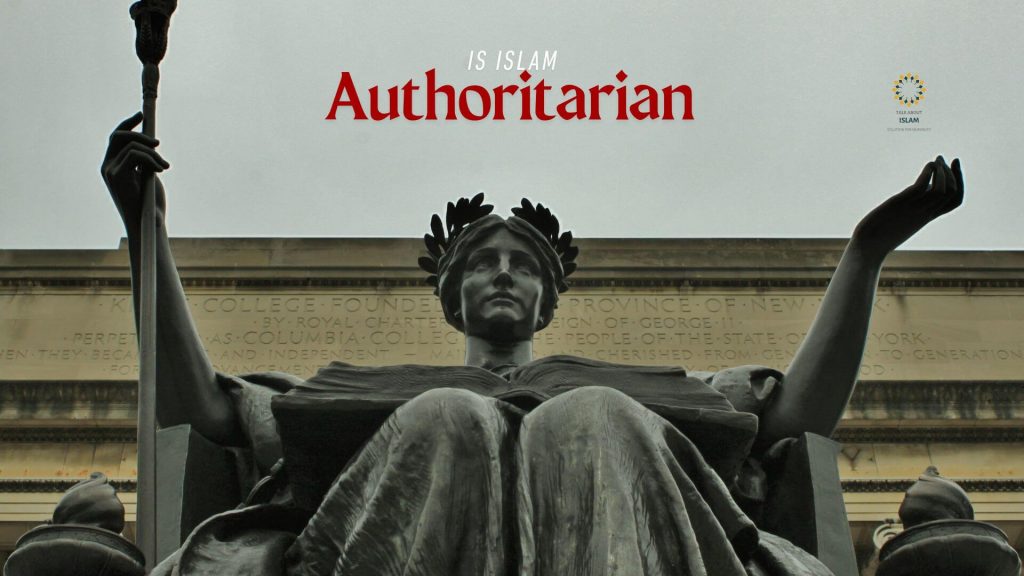Many people around the modern world might perceive that Islam promotes authoritarian control and blind obedience. This perception stems from political misuse of religion rather than Islam itself. In reality, Islam promotes an ethical and equitable system where leadership is a trust and power is a responsibility. It upholds the very foundations of accountability and transparency in governance while not making it a privilege.
So, this article explores how Islam’s moral values limit the abuse of power while promoting fairness, freedom, and dignity for all, whether Muslims or Non-Muslims.
The Misunderstanding: Why People See Islam as Authoritarian
The misconception that Islam encourages authoritarianism largely stems from historical and political events. In some cases, rulers used religion to justify control or suppress opposition, creating an image that Islam itself demands absolute obedience. However, the faith’s core message emphasizes equality, fairness, and compassion.
The Quran repeatedly warns against tyranny and injustice, reminding leaders that they are accountable for how they govern. For instance, Allah says:
“And do not incline toward those who do wrong, lest you be touched by the Fire” (Quran 11:113)
Islam encourages dialogue, cooperation, and consultation as means to make decisions, not domination or coercion.
Power as a Responsibility, Not a Privilege
Leadership in Islam is viewed as an essential moral responsibility. It is meant to serve people, not control them. A true leader is accountable before both God and the community for how they use authority. The purpose of power is to protect people’s rights, ensure justice, and promote welfare.
Thus, any form of oppression or corruption directly violates these values. The Prophet Muhammad (peace be upon him) said:
“Each of you is a shepherd, and each of you is responsible for his flock” (Sahih al-Bukhari, 893)
This hadith clearly shows that leadership is about service and accountability, not domination or privilege.
Freedom of Belief as The Heart of Islamic Ethics
A key principle in Islam states:
“There is no compulsion in religion” (Quran 2:256)
This means that belief cannot be forced, and faith must come from sincere conviction. This specific teaching protects freedom of conscience and religious choice. Islam recognizes that true morality comes from understanding, not fear. By establishing freedom of belief, Islam rejects authoritarian control over people’s hearts and minds while promoting peaceful coexistence with others. The Prophet also said:
“Whoever harms a non-Muslim citizen will not smell the fragrance of Paradise” (Sunan al-Nasai, 4995)
It shows his commitment to protecting all individuals’ rights.
Consultation as an Antidote to Dictatorship
Consultation, or collective decision-making, is an essential part of Islamic ethics. The Quran praises those who “conduct their affairs by mutual consultation” (Quran 42:38).
Leaders are expected to seek advice, involve others in decisions, and value others’ opinions. This principle works as a built-in safeguard against dictatorship or unchecked authority. In today’s world, it aligns closely with democratic ideas such as transparency, inclusiveness, and respect for diverse voices.
A leader who listens strengthens trust, while one who silences others weakens their legitimacy. The Prophet Muhammad himself regularly consulted his companions, even when he could have decided alone, which is a powerful model of humble leadership.
Justice and the Rule of Law for All
Justice is the cornerstone of Islamic ethics. Everyone, including rulers, is equal under the law. Allah commands:
“Indeed, Allah commands you to render trusts to whom they are due and when you judge between people to judge with justice” (Quran 4:58)
Historical examples show that early Muslim societies practiced accountability at every level. Leaders were questioned publicly and held responsible for their actions. The second Caliph Umar ibn al-Khattab once said,
“If a mule were to stumble in Iraq, I fear that Allah would hold me accountable for it.”
This culture of moral responsibility created trust between the people and their leaders. Justice, in its true sense, means giving everyone their due rights, protecting the weak, and ensuring fairness in every decision.
Islam, Politics, and the Essence of Human Rights
It is important to separate Islam’s spiritual message from how politics has sometimes distorted it. The religion of Islam itself does not promote control or domination. Rather, it offers a framework where moral values guide power and authority. When political actors misuse religion for personal gain, it is a failure of individuals, not of faith.
Islam warns against corruption and arrogance:
“Do not walk upon the earth arrogantly. Indeed, you will never tear the earth [apart], and you will never reach the mountains in height” (Quran 17:37)
True leadership in Islam requires humility, restraint, and sincerity, and not privileged cruelty in any way.
On the other hand, Islam places a strong emphasis on protecting life, property, dignity, and personal freedom. The Prophet Muhammad (peace be upon him) said in his Farewell Sermon:
“Your blood, your property, and your honor are sacred to you, as sacred as this day of yours, in this city of yours, in this month of yours” (Sahih Muslim, 1218)
The faith envisions a society where leaders work for the common good and ensure that citizens are safe, respected, and free to express themselves. These values complement modern human rights principles such as equality, justice, and social welfare. A leader guided by ethics naturally upholds these rights without needing coercion or control.
The Bottom Line
Islam does not support authoritarianism in any way. Instead, it offers a vision of respectable leadership rooted in ethics, humility, and justice. A true leader, in the heart of Islam, serves rather than rules. Power, when guided by moral responsibility, becomes a force for values, harmony, but not oppression. Ultimately, in Islam, leadership is not about ruling people, but serving them with morality and true justice.



